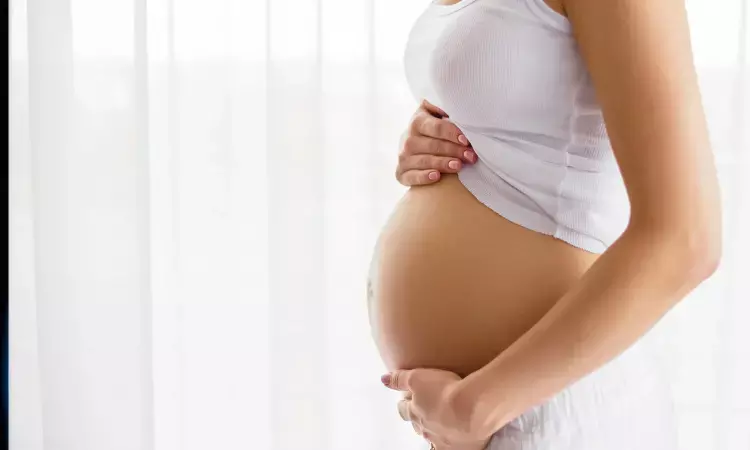- Home
- Medical news & Guidelines
- Anesthesiology
- Cardiology and CTVS
- Critical Care
- Dentistry
- Dermatology
- Diabetes and Endocrinology
- ENT
- Gastroenterology
- Medicine
- Nephrology
- Neurology
- Obstretics-Gynaecology
- Oncology
- Ophthalmology
- Orthopaedics
- Pediatrics-Neonatology
- Psychiatry
- Pulmonology
- Radiology
- Surgery
- Urology
- Laboratory Medicine
- Diet
- Nursing
- Paramedical
- Physiotherapy
- Health news
- Fact Check
- Bone Health Fact Check
- Brain Health Fact Check
- Cancer Related Fact Check
- Child Care Fact Check
- Dental and oral health fact check
- Diabetes and metabolic health fact check
- Diet and Nutrition Fact Check
- Eye and ENT Care Fact Check
- Fitness fact check
- Gut health fact check
- Heart health fact check
- Kidney health fact check
- Medical education fact check
- Men's health fact check
- Respiratory fact check
- Skin and hair care fact check
- Vaccine and Immunization fact check
- Women's health fact check
- AYUSH
- State News
- Andaman and Nicobar Islands
- Andhra Pradesh
- Arunachal Pradesh
- Assam
- Bihar
- Chandigarh
- Chattisgarh
- Dadra and Nagar Haveli
- Daman and Diu
- Delhi
- Goa
- Gujarat
- Haryana
- Himachal Pradesh
- Jammu & Kashmir
- Jharkhand
- Karnataka
- Kerala
- Ladakh
- Lakshadweep
- Madhya Pradesh
- Maharashtra
- Manipur
- Meghalaya
- Mizoram
- Nagaland
- Odisha
- Puducherry
- Punjab
- Rajasthan
- Sikkim
- Tamil Nadu
- Telangana
- Tripura
- Uttar Pradesh
- Uttrakhand
- West Bengal
- Medical Education
- Industry
Severe COVID-19 in pregnancy linked to preeclampsia and Early Delivery

Pregnant women with severe or critical COVID-19 and their unborn infants face increased health risks before and after delivery, a Rutgers study finds.
Meanwhile, the study, published in the American Journal of Obstetrics and Gynecology, also found that pregnant women with mild cases of coronavirus disease 2019 had similar outcomes compared to those who were uninfected.
"We know that women are more susceptible to some viral respiratory infections during pregnancy, but needed to understand how the severity of this novel coronavirus might affect maternal and neonatal health," said lead author Justin Brandt, an assistant professor of obstetrics and gynecology in the Division of Maternal-Fetal Medicine at Rutgers Robert Wood Johnson Medical School. "A major advantage of our study was the matched case-control design that allowed comparisons of pregnant women with COVID-19 to uninfected pregnant controls," he said.
The researchers looked at 183 pregnant women who delivered between 16 and 41 weeks of gestation between March to June 2020, comparing 61 who were diagnosed with COVID-19 and 122 who were uninfected. Among the positive cases, 54 were mild, six were severe and one was critical.
They found that Black and Hispanic women, women who were obese, women over 35 and those with medical conditions such as diabetes and high blood pressure were at greatest risk of having severe or critical COVID-19. These women were at risk of delivering early, having preeclampsia, requiring supplemental oxygen or mechanical ventilation, and extended hospital stays.
Neonatal risks, which were largely driven by premature births, included respiratory distress, bleeding in the brain, bowel inflammation, low Apgar scores, an abnormal fetal heart rate despite interventions to increase oxygen and blood flow to the placenta, and higher admissions to the NICU.
More than 60 percent of the women with a mild case of COVID-19 were asymptomatic; the rest had a cough, fever and muscle aches.
All the women with severe and critical COVID-19 required supplemental oxygen, and some received other interventions such as hydroxychloroquine in the early stages and steroids toward the end of the study.
https://www.ajog.org/article/S0002-9378(20)31134-0/pdf
Hina Zahid Joined Medical Dialogue in 2017 with a passion to work as a Reporter. She coordinates with various national and international journals and association and covers all the stories related to Medical guidelines, Medical Journals, rare medical surgeries as well as all the updates in the medical field. Email: editorial@medicaldialogues.in. Contact no. 011-43720751
Dr Kamal Kant Kohli-MBBS, DTCD- a chest specialist with more than 30 years of practice and a flair for writing clinical articles, Dr Kamal Kant Kohli joined Medical Dialogues as a Chief Editor of Medical News. Besides writing articles, as an editor, he proofreads and verifies all the medical content published on Medical Dialogues including those coming from journals, studies,medical conferences,guidelines etc. Email: drkohli@medicaldialogues.in. Contact no. 011-43720751


